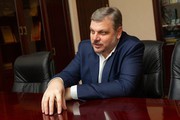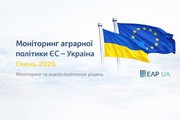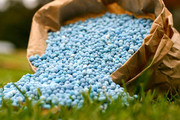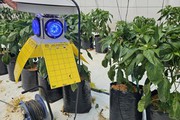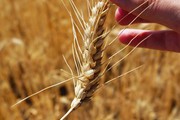News
Pavlo Koval: “Pulses are the world’s pantry of plant protein — and Ukraine can become a pillar of Europe’s food security”
Global attention to pulses is growing rapidly — and for good reason. They combine food security, economic efficiency, and environmental sustainability. Speaking on the program “Today. Afternoon” on Ukrainian Radio, Pavlo Koval, Director General of the Ukrainian Agrarian Confederation (UAC), outlined the strategic importance of pulses for both Ukraine and the world.
- Read more
- 23 reads
Brussels Steps Back, Capitals Step Up: The New "Safety-First" Reality of EU Agri-Policy in 2026
January 2026 in European agricultural policy was not marked by grand strategies or visionary reforms. Instead, it was the month of a "hard collision" between expectations and reality. The key takeaway from the start of the year is unambiguous: the center of gravity in decision-making has shifted from the supranational level of the European Commission to the national capitals of Member States. For the EU, this is an era of caution; for Ukraine, it is a signal that the rules of engagement have fundamentally changed.
- Read more
- 84 reads
Leonid Kozachenko: Ukraine will maintain its role in global vegetable oil production
President of the Ukrainian Agrarian Confederation Leonid Kozachenko, speaking on Suspilne News, commented on the situation in the vegetable oil market, price prospects, energy challenges for producers, and Ukraine’s role in ensuring global food security.
- Read more
- 159 reads
Grain exports from Ukraine slowed by 30% in the first half of the season — FAS USDA
In the first half of the MY 2025/26 (July–December 2025), Ukraine exported 7.8 million tons of wheat and 1.3 million tons of barley, according to data from the State Customs Service of Ukraine. At the same time, the average rate of grain exports was 30% lower than in the same period of the 2024/25 marketing year, according to the FAS USDA report.
- Read more
- 87 reads
Ukraine’s sugar production season 2025/26 ends nearly in line with last year thanks to record beet yields
Ukraine’s beet sugar production season ended on February 1, 2026. A total of 26 sugar plants belonging to the Ukrsugar association produced 1.64 mln tons of sugar.
Including one additional plant that is not a member of the association, total sugar output in the country reached 1.72 mln tons.
Despite a reduction in sugar beet planting areas by 50,000 ha (–23% year-on-year), sugar production declined by only 4%, or 80,000 tons.
- Read more
- 146 reads
22-23 mln ha will be sown in Ukraine this season – forecast by Pavlo Koval
Ukrainian farmers will sow 22–23 million hectares with crops in 2026, if the front line does not change significantly. This opinion was expressed by Pavlo Koval, Director General of the Ukrainian Agrarian Confederation, in an interview with Mind.
He noted that almost 6 million hectares of the indicated area have already been sown with winter crops: 570 thousand hectares of winter barley and 1.1 million hectares of winter rapeseed, about 70 thousand hectares of winter rye and 4.8 million hectares of wheat.
- Read more
- 207 reads
Commission delivers further CAP simplification up to €215 million for farmers and national administrations
This week, the Commission adopted nine further acts under the CAP’s secondary legislation to reduce unnecessary bureaucracy and regulatory burden, in line with its commitment to simplification and to strengthening the competitiveness of the farming sector and the wider agri-food value chain.
- Read more
- 156 reads
Ukraine increased fertilizer imports to almost 3.3 mln tons
Ukraine imported 3.285 million tons of fertilizers in 2025, which is 13% more than a year earlier.
“Growth occurred in almost all types of fertilizers, but the supply of nitrogen fertilizers increased significantly,” analysts note.
And they add that the market has significant transitional reserves of fertilizers in certain very important groups.
- Read more
- 173 reads
Light-Based Technology Offers New Approach to Pest Control in Greenhouses
Recent applied trials initiated by Tom Murray, Technical Manager: Fresh Fruit and Horticulture at Woolworths South Africa, are providing new insight into how light frequency, trap placement, and operating schedules can significantly influence insect pest capture in protected cropping systems. Conducted with research partners and growers, the work focuses on refining light-based attraction systems for key greenhouse and field pests, including thrips, Tuta absoluta, and several moth species.
- Read more
- 123 reads
Wheat yield plateau linked to farming practices rather than climate — scientists
Scientists have found that the wheat yield plateau in northwestern Europe is driven primarily by agronomic management rather than climatic conditions. The findings come from a study by Wageningen University and Research, published in the scientific journal Nature Food.
- Read more
- 142 reads
